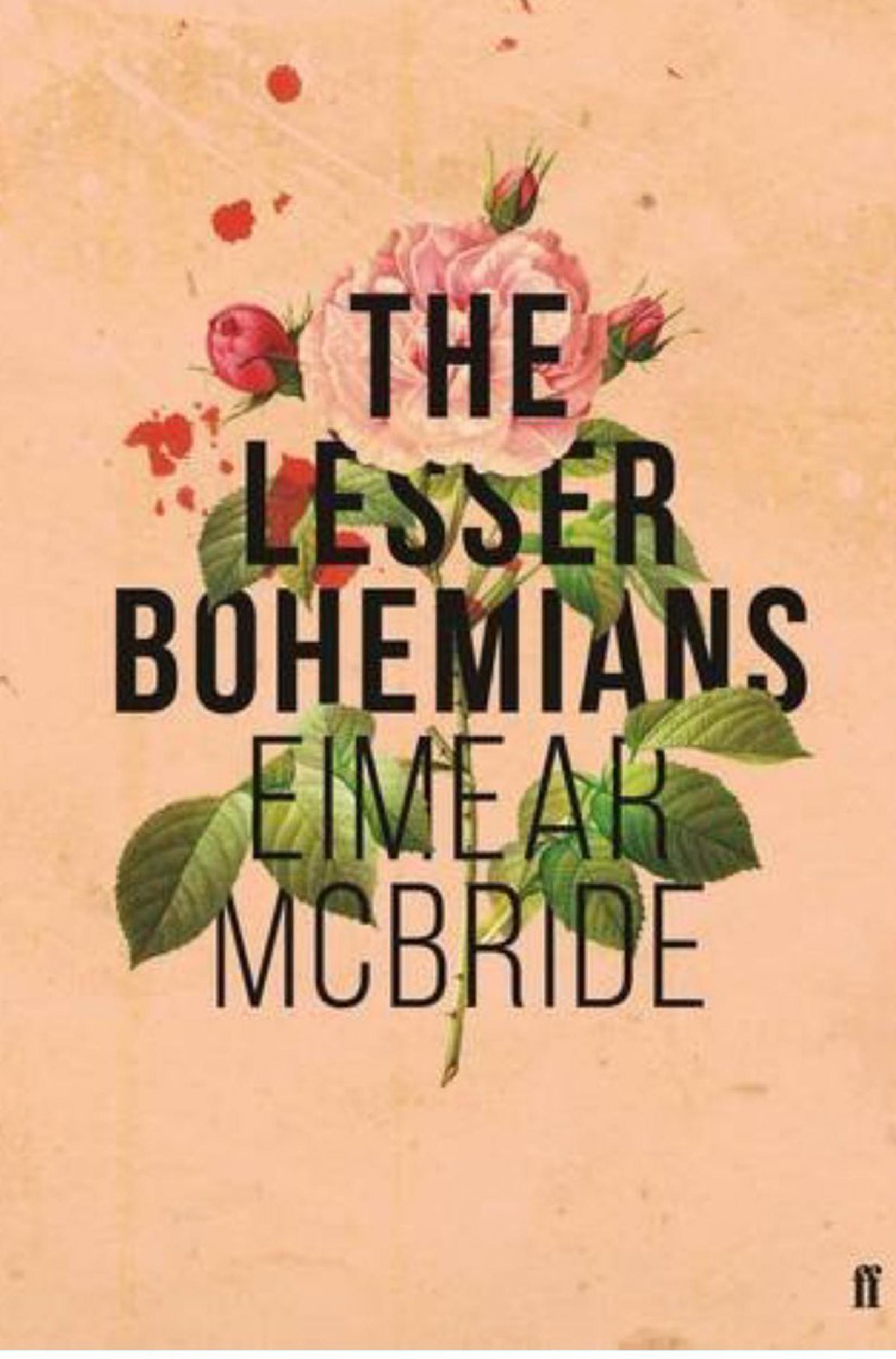
In a fairly short space of time, I have read Eimar
McBride’s first novel, A Girl Is a Half-Formed Thing and Sally Rooney’s Conversations
With Friends. Consequently, I had the queasiest feeling of familiarity as I
read The Lesser Bohemians. All feature Irish protagonists, of course, while
in The Lesser Bohemians there’s the stream-of-consciousness writing
style of A Girl, and the obsessively detailed analysis of a relationship
between a young woman and a much older man from Conversations. I think I
need something completely different next.
The Lesser Bohemians is an odd novel. Sometimes brilliant, it nonetheless never quite pulls
me in the way the superb A Girl is a Half-formed Thing did. That novel
was simply breathtaking, and I felt deeply about the main character in a way I
never did in The Lesser Bohemians. I’m not sure why. The main
characters, Eily and Stephen, are superbly realised, real, three-dimensional
human beings with massive flaws and fragile hopes and a need to connect they cannot
themselves quite recognise or reconcile. But... But...
Basically, there is something structurally strange
in the novel. Written in the first person, from Eily’s perspective, the scenes
where she recounts her horrible and confusing coming of age and maturation are
superbly written, but there are two extremely lengthy passage where we are taken
out of her immediate consciousness. In the first, lasting some seventy pages –
which is far, far too long – Stephen relates to her the bizarre and traumatic
nature of his childhood. It is certainly powerful, and clearly explains how
Stephen came to be such a troubled and troubling individual, but as a result of
Eily relating his words, the novel loses the immediacy, the urgency of those
passages where Eily is telling her own story her own way. And the second
passage, near the end, is even more distancing. In it, Eily tells us of the
conversation Stephen had with her, in which he is relating the conversation his
ex-wife had with him, in which she relates further conversations with different
people. It’s almost Shakespearian in its nested histories, and it makes for unsatisfying
reading. I had to constantly remind myself who was speaking to whom.
This is especially problematic because it is the
culmination of the novel, and it is the climax of their relationship, and yet
it is told in this – let’s be honest – clumsy way. McBride is clearly a
remarkably talented writer, so I am certain this is not just bad writing. She
must have intended it to be written this way, and she must have her reasons for
doing so. I am not sure what they are.
McBride has developed a unique voice. She is most
commonly compared to compatriot James Joyce, although there is something of
Jose Saramago about her style, or Malcolm Lowry, perhaps, in the almost hallucinatory
way she can describe things. William Golding, in his Pincher Martin
mode, would have found her writing intoxicating (although intoxication was
perhaps something Golding was too familiar with). This beautifully fragmented
style was so perfectly matched to the story in A Girl, I think many
readers of Bohemians would have approached the follow-up novel with trepidation.
McBride herself wrote of her style transferring into the new novel:
I was always a little surprised by the opinion that the style couldn’t
work in other contexts. It seemed perfectly adaptable to me and that whatever
uniqueness it possessed related to its symbiosis with the subject matter.
I don’t know. I think it was a legitimate fear. In A
Girl, the narrator was the voice and the voice was the narrator. As a reader
you got this extraordinary sense that you were in her head, looking through her
eyes, understanding with her brain. Could the almost visceral immediacyh of
that be transplanted into another character?
Yes, I think it can, and it does. I did worry that
the stream-of-consciousness would sound false second time around but it doesn’t.
McBride is a master of her style and it works absolutely. By eschewing grammar
and riding roughshod over language, inventing, eliding, toying, she has an
uncanny ability to evoke senses through the merest fragments of language. “The
anger though,” she writes at one point, after having had sex with Stephen.
Three words. A mountain of meaning.
Eimar McBride is clearly a wonderful writer. Her
next novel, she says, is going to be “smaller and quieter”. Well, perhaps, but
I suspect it is still going to make us think and wonder and worry. And what
could be better than that?
